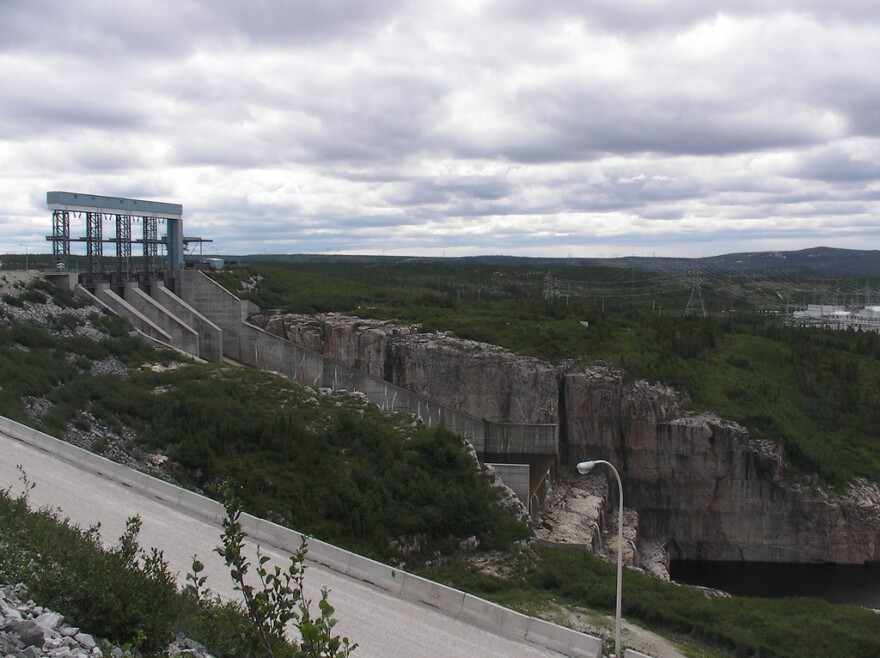Lawmakers in Connecticut are working to review and revamp the rules that encourage renewable electricity generation. And the changes as proposed could be good news for Canadian hydropower, and bad news New
Hampshire Biomass.
Democrat Bob Duff chairs the Energy and Technology Committee in the Connecticut State Senate. He’s also a sponsor of a controversial bill on renewable energy.
Duff: What we’re trying to do is plan for the future rather than have our backs against the wall where all the sudden the building’s on fire and we have to find the hose to put it out.
Connecticut, like most New England states including New Hampshire, has a law that requires utilities to buy an increasing percentage of their electricity from qualified renewable sources: like wind, solar, and some biomass.
But lawmakers in Connecticut are worried that there isn’t going to be enough renewable supply to meet demand. If utilities can’t meet the renewable goals, they have to make extra payments, which could ultimately drive up electric rates for customers. Duff and others have proposed changes that would make it so if local renewables don’t step up, the state's Department of Energy and Environmental protection could go out and procure the renewable power needed to fill the gap, including from large scale hydro power. It would then require utilities to use that power to meet renewable goals. The hydro power provision is something of a last resort, to keep prices low. The amount allowed would start at 1 percent of the state’s demand, and eventually ratchet up to 5 percent.
Duff: We could use hydro as a back-stop.
That’s right, large scale hydro-power, and the bill's language is carefully worded so as to allow Canadian hydro to qualify. That inevitably means that we’re talking about Hydro-Quebec, and the proposed transmission line that would cross New Hamphire North to South, the Northern Pass.
And some opponents believe that the bill is specifically targeted at tapping into Hydro-Quebec's vast hydro network. Dan Dolan is the president of the New England Power Generators Association, which represents Northern Pass competitors.
Dolan: For five percent of all consumer demand to go to a specific technology, there is really only one viable company that could provide this, Hydro-Quebec, that to me makes no sense.
Opponents say it would give hydro an advantage in the market. Basically, if there were a shortage of renewable energy in Connecticut, while other generators would have to duke it out on the open market, Hydro-Quebec would have a stable locked-in price.
Janet Besser of the New England Clean Energy Council says it’s not quite a subsidy, but it could certainly help. And since hydro is a "mature" technology, with prices roughly at market rates, it doesn't need that help.
Besser: What it helps is on the investing front. If you have a long term contract you can attract investors who’ll say they can invest in your project, and provide you with the money you need the funding you need to build it.
It’s a pretty squishy benefit: if Connecticut doesn’t have the renewable energy it needs, then HydroQuebec will have extra economic certainty, which could then boost its where-with-all to see a project like Northern Pass through.
But there are other impacts that renewable watchers are concerned about. The vice president of the Boston consulting firm the Analysis Group, Paul Hibbard says big hydro could soak up the demand for, and growth of other local renewables in the region.
Hibbard: It may be premature to jump to the conclusion that it will crush to the incentives for renewables throughout the entire region, but the extent that other states join in and start focusing on large hydro, then it can have a steamrolling effect.
It doesn’t really change the situation on the ground in New Hampshire though, where grassroots opposition has repeatedly pushed back announcing a new route.
Murray: You know at this point we don’t see any substantial change in terms of the project.
Public Service of New Hampshire Spokesman Martin Murray.
Murray: Northern Pass does not need renewable energy legislation in Connecticut to be successful, it never has.
Whether or not the changes mean anything for the Northern Pass project may be uncertain, but the proposed Connecticut law could also have an impact on the state’s biomass industry. That’s currently made up of six small, wood-burning electric plants that are sprinkled all over Western and Northern New Hampshire.
Eric Kingsley works for Innovative Natural Resource Solutions, a consulting firm that works in the biomass industry. He says, currently New Hampshire biomass plants all feed into the New England grid, so they

qualify for subsidies from the Connecticut Renewable energy market. And it’s because of that these twenty-five-year-old plants are just managing to keep their heads above water. But the Connecticut bill has language that suggests that New Hampshire biomass might eventually get cut out of the Connecticut market.
Kingsley: And that’s a real threat to the continued operation of these six facilities.
This bill is on the fast track: it was voted through Senate this week and was rush-ordered to the House. The House will take it up next week, and could tack on amendments before it's passed, but then it’s on to the governor’s desk and he’s expected to sign it into law.



